Jason Whitehead — My Intellectual Influences
Jason Whitehead — My Intellectual Influences
Everyone needs heroes to inspire them and give them wisdom. Throughout my life, I have been blessed with lots of personal and intellectual heroes. Here is a small selection of my favorite intellectuals — people whose scholarship and writing have had the most influence on me:
Edwin Roberts was my political theory professor when I was an undergraduate here at CSULB. He taught me about Critical Theory, especially Marcuse, Habermas, and the rest of the Frankfurt School, whose ideas formed the basis of most of my early research in Critical Legal Studies. Dr. Roberts also introduced me to postmodern thinkers like Foucault and Derrida, who he strongly disagreed with. Most of all, though, Dr. Roberts taught me that some ideas are worthy of great passion and energetic debate, intellectual qualities which characterized every aspect of his life until his untimely death. When I was asked to step in and teach his courses the semester after he passed away, it was one of the greatest honors of my life even though it was impossible to adequately fill his shoes.
Theory, especially Marcuse, Habermas, and the rest of the Frankfurt School, whose ideas formed the basis of most of my early research in Critical Legal Studies. Dr. Roberts also introduced me to postmodern thinkers like Foucault and Derrida, who he strongly disagreed with. Most of all, though, Dr. Roberts taught me that some ideas are worthy of great passion and energetic debate, intellectual qualities which characterized every aspect of his life until his untimely death. When I was asked to step in and teach his courses the semester after he passed away, it was one of the greatest honors of my life even though it was impossible to adequately fill his shoes.
Alasdair MacIntyre was one of the only philosophers outside of the Critical Theory tradition for whom Dr. Roberts had any 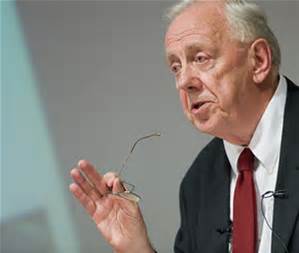 respect. I first read his master work, After Virtue in Dr. Roberts’ Modern Political Theory course, and I was haunted by MacIntyre’s analysis of the maladies of a society whose moral debates — about things like sexual freedom, economic inequality, and other issues — are interminable because we have abandoned the idea that any one moral view can be better than another. From that book, and also from a later book, Whose Justice? Which Rationality?, I also learned about the theory of social practices, which had a huge effect on my later work on the rule of law.
respect. I first read his master work, After Virtue in Dr. Roberts’ Modern Political Theory course, and I was haunted by MacIntyre’s analysis of the maladies of a society whose moral debates — about things like sexual freedom, economic inequality, and other issues — are interminable because we have abandoned the idea that any one moral view can be better than another. From that book, and also from a later book, Whose Justice? Which Rationality?, I also learned about the theory of social practices, which had a huge effect on my later work on the rule of law.
Judith Grant actually taught the very first college course I took here at CSULB — Introduction to Political Theory. But then she moved on to USC where — several years later — she became my main M.A. advisor. With her, I first read seriously many of Marx’s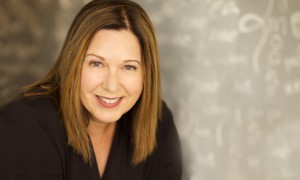 writings that were influential for the critical theorists, especially the Economic and Philosophical Manuscripts and the German Ideology. Reading these works on their own terms helped me see the weaknesses as well as the strengths of the Marxist project. More importantly for my later work, Dr. Grant gave me a wide and deep appreciation for the western canon of political theory, especially Enlightenment thinkers like Hobbes and Locke, but also post-Enlightenment thinkers like Nietzsche and Arendt. Of course, I also learned about feminism and sexual identity with Dr. Grant, reading thinkers like Shulamith Firestone, Judith Butler, and Jack Halberstam for the first time. As a teacher, I learned much from Dr. Grant about presenting ideas fairly, even — especially — those ideas with which one disagrees most.
writings that were influential for the critical theorists, especially the Economic and Philosophical Manuscripts and the German Ideology. Reading these works on their own terms helped me see the weaknesses as well as the strengths of the Marxist project. More importantly for my later work, Dr. Grant gave me a wide and deep appreciation for the western canon of political theory, especially Enlightenment thinkers like Hobbes and Locke, but also post-Enlightenment thinkers like Nietzsche and Arendt. Of course, I also learned about feminism and sexual identity with Dr. Grant, reading thinkers like Shulamith Firestone, Judith Butler, and Jack Halberstam for the first time. As a teacher, I learned much from Dr. Grant about presenting ideas fairly, even — especially — those ideas with which one disagrees most.
Howard Gillman was my Ph.D. dissertation advisor at USC. As a teacher, he showed me how to deal with students as fellow 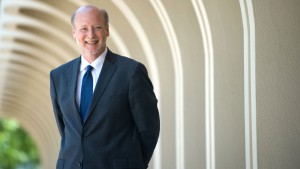 human beings worthy of my time and attention not only as people to be taught but as potential intellectual companions. As a scholar, Dr. Gillman showed me that it was possible to still study judges and courts as if the law still matters — something that most other political scientists doubt. Dr. Gillman also introduced me to neo-pragmatism through the writings of Richard Rorty and Stanley Fish, about whom we had some incredible conversations. His version of Historical Institutionalism — most evident in his master work, The Constitution Besieged — blended post-positivist theory with thorough qualitative research in a way that convinced me there was a place for people like me in the field.
human beings worthy of my time and attention not only as people to be taught but as potential intellectual companions. As a scholar, Dr. Gillman showed me that it was possible to still study judges and courts as if the law still matters — something that most other political scientists doubt. Dr. Gillman also introduced me to neo-pragmatism through the writings of Richard Rorty and Stanley Fish, about whom we had some incredible conversations. His version of Historical Institutionalism — most evident in his master work, The Constitution Besieged — blended post-positivist theory with thorough qualitative research in a way that convinced me there was a place for people like me in the field.
Ronald Dworkin was a legal philosopher I first encountered in law school but didn’t fully consider until I was studying with Dr.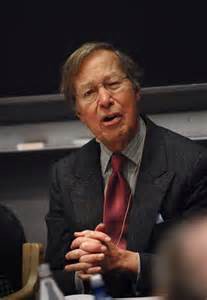 Gillman. His view — especially as laid out in Freedom’s Law and Law’s Empire — that legal principles are more important than legal rules and that judging is a thoroughly interpretive enterprise were hugely influential for my research on judicial values. Most importantly, I have always appreciated Dworkin’s insistence that the distinction between subjective judicial values and objective legal text — a distinction insisted on by both judicial conservatives and their radical left-wing critics — is a false dichotomy. Both are actually essential to good judging in a liberal democratic society.
Gillman. His view — especially as laid out in Freedom’s Law and Law’s Empire — that legal principles are more important than legal rules and that judging is a thoroughly interpretive enterprise were hugely influential for my research on judicial values. Most importantly, I have always appreciated Dworkin’s insistence that the distinction between subjective judicial values and objective legal text — a distinction insisted on by both judicial conservatives and their radical left-wing critics — is a false dichotomy. Both are actually essential to good judging in a liberal democratic society.
Dallas Willard was my philosophy professor when I was a Ph.D. student at USC, under his guidance I began to question the 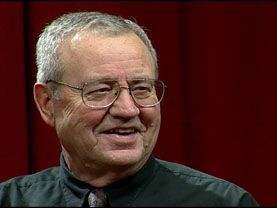 central tenets of Critical Theory. Dr. Willard taught me a lot about Husserl, Heidegger, and the rest of the phenomenological tradition, as well as about Gadamer and hermeneutics. These philosophical currents gave me a wider and deeper perspective on interpretation and the construction of meaning, both of which are at the center of the social practice of the rule of law. Above all, though, Dr. Willard taught me that thinking is not merely an ideological practice — it can be a reliable method of finding out the truth about reality, the world, our society, and ourselves. In particular, his later work on spirituality and epistemology played a significant role in convincing me that modern attempts to separate faith and knowledge are shortsighted at best and dangerous at worst.
central tenets of Critical Theory. Dr. Willard taught me a lot about Husserl, Heidegger, and the rest of the phenomenological tradition, as well as about Gadamer and hermeneutics. These philosophical currents gave me a wider and deeper perspective on interpretation and the construction of meaning, both of which are at the center of the social practice of the rule of law. Above all, though, Dr. Willard taught me that thinking is not merely an ideological practice — it can be a reliable method of finding out the truth about reality, the world, our society, and ourselves. In particular, his later work on spirituality and epistemology played a significant role in convincing me that modern attempts to separate faith and knowledge are shortsighted at best and dangerous at worst.
Walker Percy, was a novelist, essayist, and a philosopher of language whose writings I first encountered while I was a Ph.D. student searching for both individual and scholarly purpose after becoming disillusioned with Critical Theory. Percy’s novels —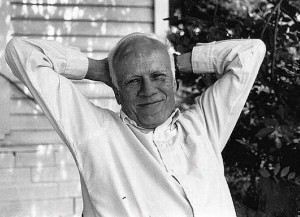 especially The Moviegoer, The Last Gentleman, and The Second Coming — all involve the loss of meaning and personhood in the modern and contemporary world that has lost its ability to understand itself. His philosophical essays about language and society — especially the essays collected in The Message in the Bottle and Signposts in a Strange Land — have been a constant reminder to me that our very thoughts and words are clues to who we really are: wayfarers looking for signs of home.
especially The Moviegoer, The Last Gentleman, and The Second Coming — all involve the loss of meaning and personhood in the modern and contemporary world that has lost its ability to understand itself. His philosophical essays about language and society — especially the essays collected in The Message in the Bottle and Signposts in a Strange Land — have been a constant reminder to me that our very thoughts and words are clues to who we really are: wayfarers looking for signs of home.
Charles Taylor is a social theorist whose work I first encountered in a footnote in an article by my mentor, Dr. Gillman, and in 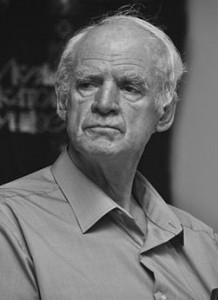 an essay assigned by Dr. Willard. As I was writing my first book, Taylor’s theory of the dialogical nature of human personhood and action and his notion of the social imaginary — described in several published essays — provided me with the necessary social diagnostic tools to replace those of Critical Theory. Later, as I was researching my second book, I found Taylor’s views of secularization and the problems with the modern moral order that accompanies it, which are outlined so well in his book A Secular Age, to be an accurate and persuasive diagnosis of our current situation vis a vis the place of religion and ethics in public life.
an essay assigned by Dr. Willard. As I was writing my first book, Taylor’s theory of the dialogical nature of human personhood and action and his notion of the social imaginary — described in several published essays — provided me with the necessary social diagnostic tools to replace those of Critical Theory. Later, as I was researching my second book, I found Taylor’s views of secularization and the problems with the modern moral order that accompanies it, which are outlined so well in his book A Secular Age, to be an accurate and persuasive diagnosis of our current situation vis a vis the place of religion and ethics in public life.
Peter Berger is one of those scholars whose ideas influenced me long before I ever read anything he wrote. The pioneering views he and his coauthor defended in The Social Construction of Reality were very influential for many of the neo-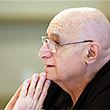 pragmatists I read with Dr. Gillman as well as for many of the postmodern theorists I had been reading since my undergraduate days. What I have most appreciated in Berger’s later work, though, is his insistence that understanding the social construction of reality does not absolve us of the responsibility to normatively evaluate our views of that reality. This insistence is nowhere more evident than in Berger’s work on the sociology of religion, including A Rumor of Angels and The Sacred Canopy. The more I continue to study the intersection of law and religion — as I have since knowing Dr. Willard — the more convinced I am that we cannot separate faith and knowledge — far from being enemies, they are both necessary for understanding the world and our place within it.
pragmatists I read with Dr. Gillman as well as for many of the postmodern theorists I had been reading since my undergraduate days. What I have most appreciated in Berger’s later work, though, is his insistence that understanding the social construction of reality does not absolve us of the responsibility to normatively evaluate our views of that reality. This insistence is nowhere more evident than in Berger’s work on the sociology of religion, including A Rumor of Angels and The Sacred Canopy. The more I continue to study the intersection of law and religion — as I have since knowing Dr. Willard — the more convinced I am that we cannot separate faith and knowledge — far from being enemies, they are both necessary for understanding the world and our place within it.
